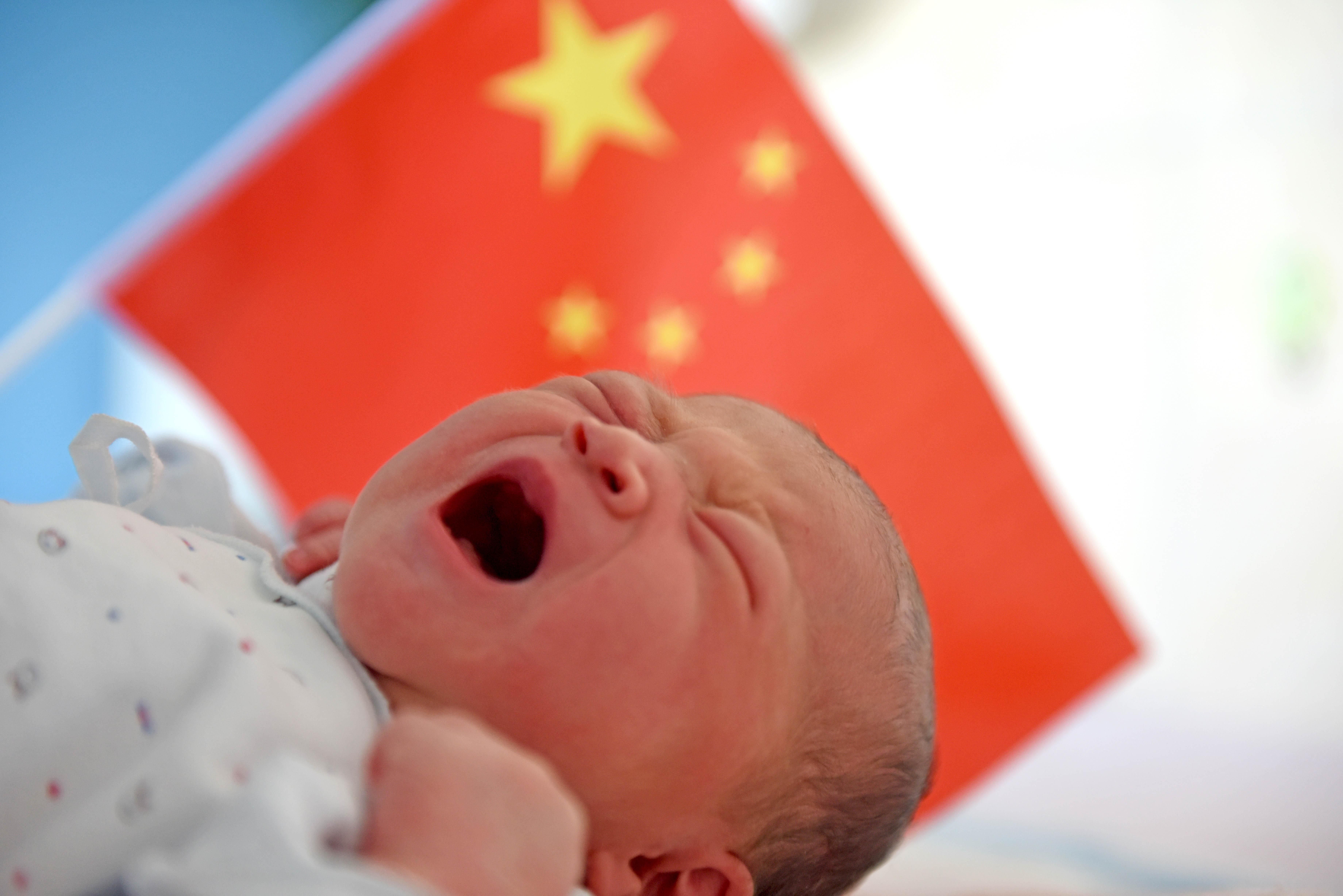Six hundred and eighty-eight million. That's how many Chinese women could be affected by Beijing's announcement this week that it will reduce access to abortions for non-medical reasons.
This follows a string of policies enforced by China's Communist Party — notorious for its ruthless one-child policy — in recent years to boost birth rates.
President Xi Jinping, why the massive change of heart?
The problem. For decades, the CCP was worried about overpopulation, and in 1978 told Chinese families they could only have one kid to contain the ballooning population size. (This was in response to Mao Zedong encouraging people to have lots of babies in the early 1950s.) But its most recent 2020 census data show that after years of restricting the number of births, China's population is now shrinking — fast.
This demographic trend is a massive problem for China, currently vying to overtake the US as the world's largest economy. From Beijing's perspective, it's also not helpful that budding economies across Asia and Africa are seeing the exact opposite trend.
Some experts blame the rising costs of housing, education, and childcare for the downward trend, which saw the Chinese population grow at its lowest rate recently since the 1950s.
Indeed, this shift hits at the very heart of China's new economic model, focused on boosting consumption at home to reduce reliance on exports, as well as increasing the number of workers to support the country's aging population. It's pretty straightforward: Beijing wants more people in the country to buy and produce more stuff.
Women as a tool for economic growth. To address this problem, the CCP has enforced a series of "family planning" laws aimed at boosting birth rates. After 35 years, they lifted the infamous one-child policy in 2016, encouraging Chinese couples to have two kids. Then it became three.
And Xi is still pulling out all the stops. To slow divorce rates the CCP also recently enforced a mandatory "cooling off" period before divorces can be finalized. Now they are limiting access to abortion, though details remain extremely scarce.
What's more, health officials have reportedly also discouraged women from having C-sections, saying that they increase the risk of complications during a subsequent pregnancy. If you're a Chinese woman, President Xi is not only in your bedroom, but also in your delivery suite.
The government may want Chinese women to become baby-making machines, but after spending decades using fear and punishment to limit family expansion, it will take a seismic psychological shift for many Chinese women, and men, to embrace the idea of having more kids.
Unintended consequences. For now at least, the loosening of family-planning rules is not going as Beijing may have intended. Part of the problem is that social policies and workplace discrimination laws haven't caught up with the government's procreation plans.
In the past, employers knew that women would take maternity leave only once, so if a mother of one interviewed for a job you knew she was a safe bet. But since now they can have up to three kids, that's no longer the case. The proof is in the data: one survey found that Chinese companies were 75 percent more hesitant to hire women after the two-child policy was introduced, while anecdotal evidence suggests discrimination against pregnant women, and women of child-bearing age, is rife. This dynamic certainly is not helping Beijing integrate more people into the workforce.
Moreover, there are no national regulations on maternity leave, meaning that women are often frozen out of the job market once they give birth. And while China has invested heavily in infrastructure development, for example, there's been little public investment in childcare. For many Chinese families, retaining private round-the-clock babysitting services could outpace what a woman might earn at a factory or office. Unlike in many parts of Asia, women's participation in the workforce is high in China, but that's changing.
Social engineering. China's economic ambitions are often viewed through the lens of flashy projects like its Belt and Road Initiative. But its social engineering activities at home, where female autonomy is increasingly under attack, are a crucial part of its grand economic plans, too.
- China has a big population problem - GZERO Media ›
- Why do Americans get so worked up about abortion? - GZERO Media ›
- What We're Watching: SCOTUS wades into abortion minefield ... ›
- The Graphic Truth: Abortion laws around the world - GZERO Media ›
- What We're Watching: Mexican women demand abortion rights ... ›
- Can Xi save China from Evergrande? - GZERO Media ›
- Xi Jinping goes full 1984 - GZERO Media ›
- Why is Xi Jinping willing to slow down China’s economy? ›
- Xi Jinping shaping China's chilling future - GZERO Media ›
- Should we be worried about population decline? - GZERO Media ›
More For You
Mojtaba Khamenei, the second son of Iran's late Supreme Leader Ayatollah Ali Khamenei, visits Hezbollah's office in Tehran, Iran, October 1, 2024.
When the Islamic Republic’s senior clerics met yesterday to decide on the next supreme leader, Mojtaba Khamenei reportedly emerged as the favorite to succeed his assassinated father, Ali Khamenei.
Most Popular
What’s Good Wednesdays™, March 4, 2026
Walmart’s $1 billion investment is strengthening associate careers
6,500: The number of M23 rebels fighting in Congo.
You probably know some of the more familiar German words in English: Schadenfreude, say. Or Angst. Maybe Realpolitik. And if nothing else: Hamburger.
